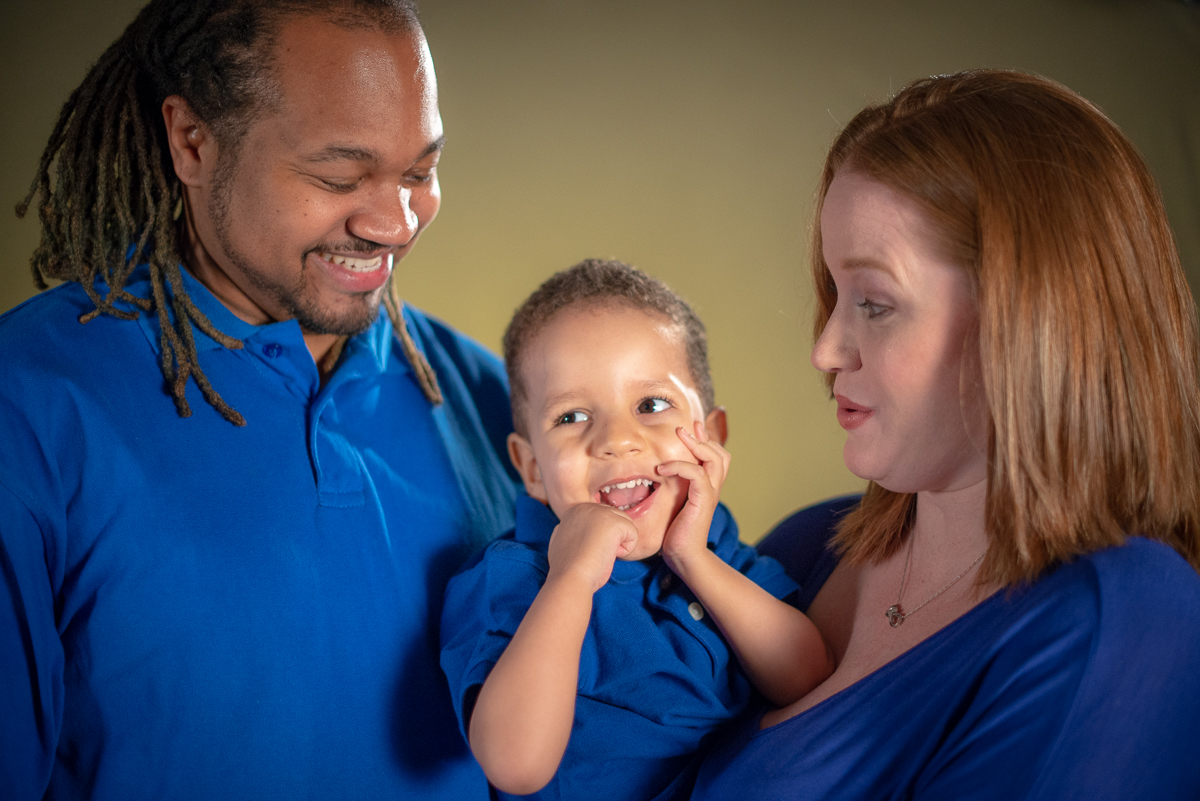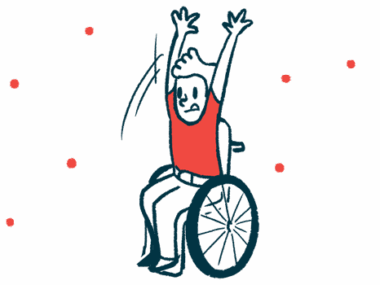Zolgensma ‘Saved All of Our Lives’: A Family’s Journey Through Gene Therapy
Written by |

Malachi was one of the first babies treated with Zolgensma.
Tina and Torence Anderson’s sixth and youngest child, Malachi, came into the world on July 31, 2015.
“When he was born, he was normal,” Tina said in a phone interview with SMA News Today.
But eight weeks later, she began to think something was wrong. The baby wasn’t moving his head or limbs much, and he wasn’t hitting developmental milestones typical for his age, like rolling over.
When a few more weeks passed without signs of improvement, the Andersons brought Malachi to their pediatrician, who tested the now 3-month-old’s reflexes. But Malachi “didn’t have a reflex,” Tina said, and the doctor referred the couple to Nationwide Children’s Hospital in Columbus, about an hour away from their Mansfield, Ohio, home.
Ten days later, Malachi was diagnosed with spinal muscular atrophy (SMA) type 1, the most severe form of the disease.
“They basically just told us we had six to 12 months to just take our son home and love him,” Tina said. “That was really hard.
“We did come home, we had our grieving period of a few days. But then I jumped online to try to find something to help Malachi. … I was ready to go to the end of the world just to get him help.”
The Andersons soon found Spinraza (nusinersen), then in pivotal clinical trials that would lead to its 2016 approval. Enrolling in those studies, however, would have required Tina and Malachi to spend almost a year away from the rest of their family — the closest trial site was in Chicago — and his parents worried that Malachi would be given a placebo instead of the actual therapy.
Further searches led to a pivotal Phase 1 clinical trial (NCT02122952) into a gene therapy known as AVXS-101 — what would become Zolgensma (onasemnogene abeparvovec-xioi) — then getting underway at Nationwide.
Malachi’s parents leapt into action. This trial was “perfect for two reasons,” Tina said. “One, it was close and so our family wouldn’t be separated, and two, because this was a one-time treatment.”
They contacted the SMA clinic at Nationwide and began the process of trying to get Malachi enrolled in the trial. A first date given for an evaluation was months away, so the family — working with the pediatrician — pushed back. Then came a call for a meeting the very next week — Nov. 11, an auspicious date for the Andersons, as it is the anniversary of Tina’s mother’s passing. “We kind of knew we had a guardian angel looking out for us,” Tina recalled.
Malachi underwent a battery of tests — mostly blood screens — to see if he could participate in the trial, most notably ensuring he didn’t have antibodies against the virus that delivers the gene therapy.
“We started testing and all the screenings to see if he’d be eligible, and the day before Thanksgiving we got the call that Malachi was approved,” Tina said.
Deciding to participate in the study wasn’t at all a hard decision. “At that point, it was either take the risk and him potentially be here with us, or not do it and him not be around,” Torence said.
Cradled in his mother’s arms, Malachi was given Zolgensma in a one-hour intravenous infusion on Dec. 2, 2015. He was 4 months and 2 days old: the 14th of the 15 babies treated in this first study and — as one of the last enrolled — among the 12 given the high dose in the trial, which is now the recommended therapeutic dose.
The infusion wasn’t much of an ordeal for anyone, particularly Malachi, his mother recalled. “I don’t think he really knew anything was going on,” she said. “He just kind of looked around, he watched a movie, he fell asleep … he just didn’t wanna be bothered.”
Improvements were evident almost immediately. “In the first 24 hours, we saw Malachi make more movement in his legs than he had prior to the gene therapy,” said Tina, adding that over the next several weeks, he “made a lot of gains,” lifting his head, then his arms and legs. “Then, before we knew it, he was trying to sit on his own.”
Now almost 4, Malachi continues to grow stronger day by day, she added. He isn’t able to walk, but he can propel himself in his own wheelchair.
Just a week before talking to SMA News Today, Malachi looked at his mother and proclaimed, “Mommy, I can scoot!” The boy then “scooted in a whole circle … with no assistance,” she said, adding that she thinks Malachi is “actually stronger than he thinks he is.”
Added Torence: “He tries to be as independent as he can and tries to adapt himself the best way he can to maneuver to get to wherever he wants.”
Malachi has just finished his first year of preschool, and according to his parents, acts pretty much like any other kid his age.
“He loves to be around his friends, he loves to be at school,” Tina said. “His teachers are really good at adapting games so that Malachi is included in everything. He plays soccer, he plays T-ball with his class … they throw the ball to him and he throws it back.
“He loves school because there he really gets to be a kid.”
Malachi gets daily physical therapy at school and at home, as well as weekly visits to a local clinic and semiannual trips to Nationwide for additional physical and occupational therapy. His parents welcome it all.
“To us, [doing physical therapy is] not a big deal; it’s just our new daily routine,” Tina said. “Our life is a little different than other people’s, but we’re happy to take it on because our son is alive and well and he’s happy.”
Zolgensma’s recent approval by the U.S. Food and Drug Administration thrilled the Andersons: “I ugly cried for like three hours,” Tina said. “It was just so exciting that our son and the other 14 babies [in the clinical trial] had such a huge part in getting this drug to where it is today.”
Its hefty price — listed at $2.125 million for one-time use — also doesn’t really bother the couple. They paid nothing for the treatment, because it was still an experimental therapy in clinical study. But they would, were it necessary.
“You cannot put a price on your child’s life,” Tina said. “If we were told tomorrow that we had to pay it back, we would. We would find a way, one way or another, because it saved our child.”
For now, they aren’t considering any additional treatments for Malachi beyond therapy sessions, just keeping an eye on developments in trials of muscle strengtheners and other potential SMA therapies.
“We feel that Zolgensma is doing exactly what we hoped it would do,” Tina said. Since his 2015 infusion, Malachi’s “always gained [in motor skills]; he’s never had any plateaus, he’s never lost any strength. … We’re very happy with Zolgensma being his only treatment for now.”
His parents credit it with being lifesaver for all in this close-knit family, whose oldest child is 13.
“It didn’t only save Malachi. It saved all of our lives, because when you lose a child or a sibling or a grandson or a granddaughter, that is heartbreaking and life-shattering,” his mother said.
“Because of Zolgensma, we have a future. SMA was not the end of our son. It never will be.”





